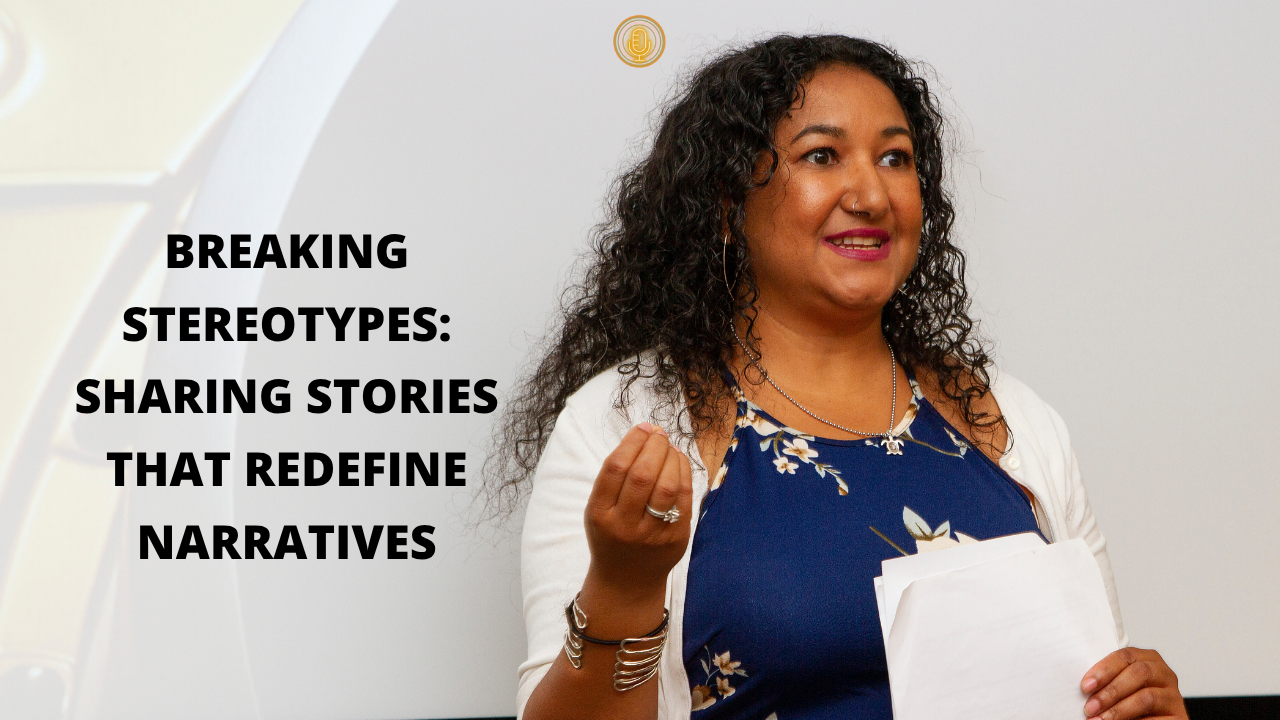Breaking Stereotypes: Sharing Stories That Redefine Narratives

For far too long, cultural stereotypes have told our stories for us.
They've shaped the way others see us, and often, the way we see ourselves. But here’s the truth: stereotypes are incomplete stories. And the only way to rewrite them is to speak up and tell the full, real, complex, and beautiful versions of who we are.
As someone who works with women, BIPOC, and LGBTQ+ individuals to help them craft and share their personal stories with confidence, I’ve witnessed firsthand how powerful it is when someone decides to stop playing small, stop fitting into boxes, and start telling the truth on their terms.
Because there’s something incredibly radical about standing up and saying, “That’s not my story. Let me tell you who I really am.”
We’ve all experienced it: bias. Someone assuming something about you because of how you look, where you’re from, who you love, or what language you speak. Those assumptions often come from societal narratives that have been repeated for generations. Sometimes they’re subtle, and sometimes they’re loud. But either way, they’re limiting.
In her TED Talk “The Danger of a Single Story,” Chimamanda Ngozi Adichie talks about how stereotypes aren’t necessarily untrue, they’re just incomplete. And incomplete stories rob us of our humanity. They flatten us. They silence us. (If you have 18 minutes to spare, click the link and watch her talk!)
That’s why storytelling isn’t just a communication tool, it’s a revolutionary act.
When you step into the power of your voice and share your lived experience, you reclaim ownership of your identity. You push back against the version of your story that someone else tried to write for you. And when you share your real story—the one with nuance, contradiction, vulnerability, and strength—you do more than just speak.
You disrupt. You expand the narrative. You give permission to others to do the same.
I’ve worked with women who once believed their stories were “too much,” “not enough,” or “too boring.” But once they said them out loud on a stage, in a workshop, or in a room full of strangers, they realized their uniqueness was their power. Their truth connected with others in ways they never expected.
And that’s the thing about lived experience: it’s the one thing no one can take from you. It’s also the one thing no one else can tell for you.
Whether you’re challenging gender norms, breaking silence around mental health in your community, or simply sharing the everyday beauty of your life that the media never seems to show, your story matters. Not because it’s perfect. Not because it ties up neatly with a bow. But because it’s real.
Every time someone steps up to speak their truth, the cultural script shifts a little. And those shifts build. They ripple outward. They change the narrative and what’s possible for the next person.
If you’ve been holding back from telling your story because it doesn’t fit the mold or because you’ve been told it shouldn’t be told, consider this your invitation.
You don’t need to wait until it’s polished. You don’t need to wait until you have the “right” words. You just need to start.
Tell the story that’s been silenced. Speak from your lived experience. Redefine what it means to be you on your own terms.
Because the world doesn’t need more assumed, biased, watered-down versions of who we are.
It needs us to share our stories unapologetically, unfiltered, and unwritten by anyone else.
If you’re ready to challenge the narrative and own your story, book a free call with me and let’s talk about how to take your lived experiences and turn them into powerful, stereotype-shattering stories.
